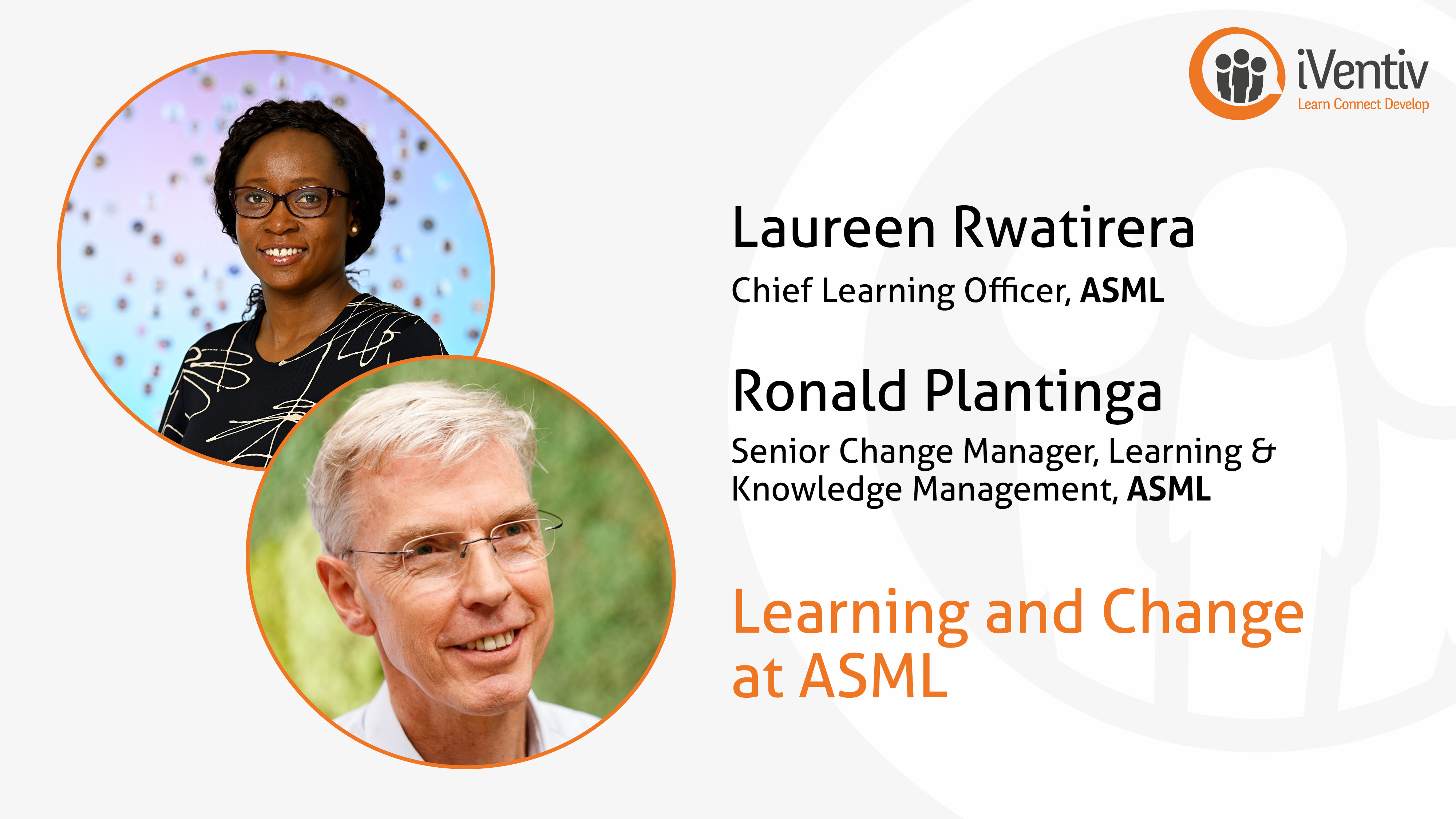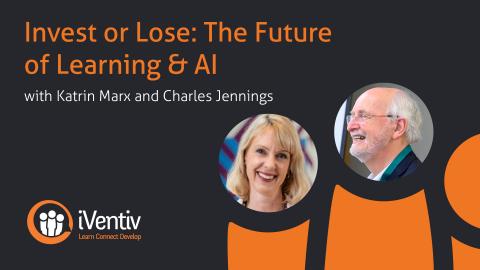Submitted by networkadmin on
How are ASML preparing their learning teams for change? In this interview, Laureen and Ronald discussed leadership skills, efficient and effective onboarding, and mentoring at a time of enormous change at ASML, the manufacturer of photolithography machines that is arguably one of the world’s most important companies. The pair talk about the importance of agile mindsets in the midst of a global context that makes computer chips a red-hot topic, not to mention adapting to new AI tools and other technologies that could revolutionise L&D in the years to come.
ASML is expanding its workforce very rapidly right now. What role, as an L&D team, do you play in that expansion, and what are your key considerations?
Ronald Plantinga, Senior Change Manager, Learning & Knowledge Management at ASML talks about the company’s significant growth in its workforce, with double-digit expansion in recent years. He says that this necessitates the rapid onboarding and development of a large number of new employees. The Learning and Knowledge Management (L&KM) team at ASML plays a crucial role in this expansion by focusing on reducing the time it takes for new hires to reach competence in their roles. They collaborate closely with the business to design learning intervention programs and streamline processes to expedite the onboarding and skill development of new employees. Another important aspect, Ronald continues, is capturing the knowledge of experienced employees who may retire or leave the company, ensuring knowledge integration throughout the organisation. This emphasis on knowledge management distinguishes ASML's L&D team, highlighting the significance of both learning and knowledge management in their role.
Laureen expands on the L&D team’s focus on enhancing the quality of the onboarding experience, upskilling and reskilling employees, fostering cross-sector collaboration, and promoting knowledge sharing through communities of practice, mentoring, and coaching. The objective is to equip all ASML employees with the necessary knowledge and skills to excel in their current and future roles. Retention is also crucial, she says, as the company aims to retain talented individuals to sustain its continued growth. Minimizing the time and effort spent by employees in finding the right expertise and up-to-date knowledge is a key consideration for ASML's L&D team. Overall, the team's efforts align with ASML's expansion strategy and contribute to creating a supportive learning environment for employees.
With regard to big innovations and change happening right now within the L&D sector, does it help you to be, as a team, already in that change management mindset?
Having a change management mindset is highly beneficial for the learning team, especially considering the significant innovations and changes happening within the sector. Laureen mentions that the ability to be responsive to change and build agile processes is crucial. It is important to have the capacity to adapt, shift gears, or even make entirely different design decisions when necessary. She goes on the say that embracing change also keeps the job exciting and encourages continuous learning.
As learning professionals, says Ronald, it is essential to lead by example and foster a culture of learning within the organisation. ASML, as a company, embraces change and thrives on resolving problems that others may find unresolvable. The learning team must accelerate its impact on the organisation and provide highly scalable solutions globally. Being in a change management mindset allows the team to navigate dynamic landscapes and deliver effective learning initiatives at scale.
As a learning team, what are you doing to prepare the organisation to deal with big changes at a leadership level and perhaps further down as well?
ASML has been described as the “most important company you’ve never heard of”, but the global chip shortage, the growing technology race between the US and China and the CHIPS Act in the States have put ASML in the news much more often.
To build resilience and adaptability within the organisation, the learning team at ASML focuses on developing leadership skills at all levels. As the company grows, it becomes crucial to ensure that leaders have the necessary skills to manage their teams effectively. This includes providing the right knowledge, skills, mentors, and access to coaches. The learning team also emphasises the importance of coaching and mentoring throughout the organisation. Coaching is primarily done by managers and leaders, both internally and externally, while mentoring involves sharing experiences with others who may be less familiar with ASML's operations. ASML is actively expanding its mentoring programs to facilitate knowledge sharing. By equipping leaders with the right skills and fostering a culture of coaching and mentoring, the organisation aims to handle shifts and challenges effectively. Despite ASML being relatively unknown to many, its reputation is gradually changing as it gains more visibility in the news and industry.
Laureen Rwatirera is Chief Learning Officer at ASML. She joined ASML after spending 4.5years at Prosus where she led the Naspers Academy to support high growth companies in their investment portfolio.
Ronald Plantinga is Senior Change Manager, Learning & Knowledge Management at ASML. He's a successful leader in product management, marketing, new business development and is a senior corporate education professional.











